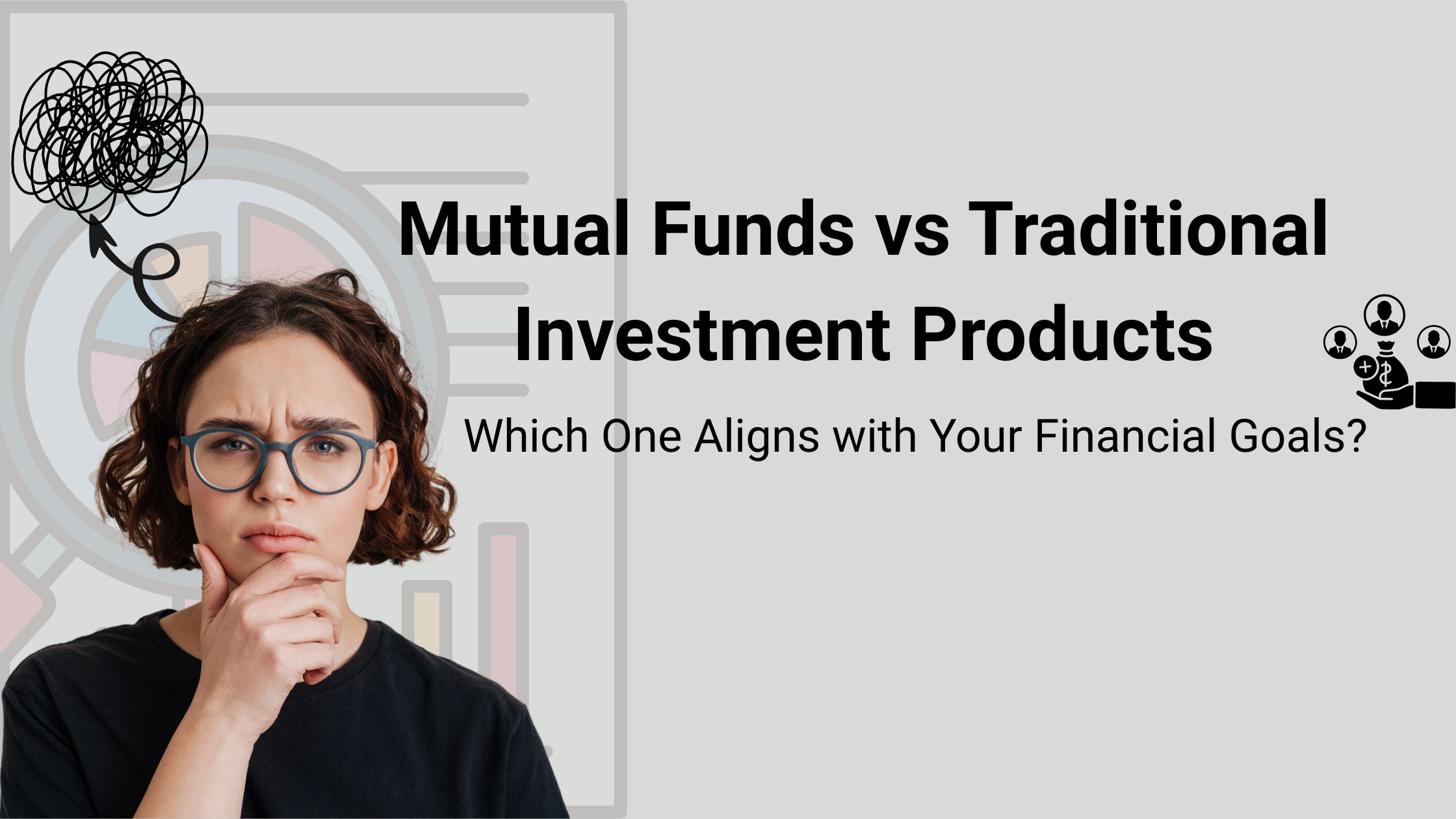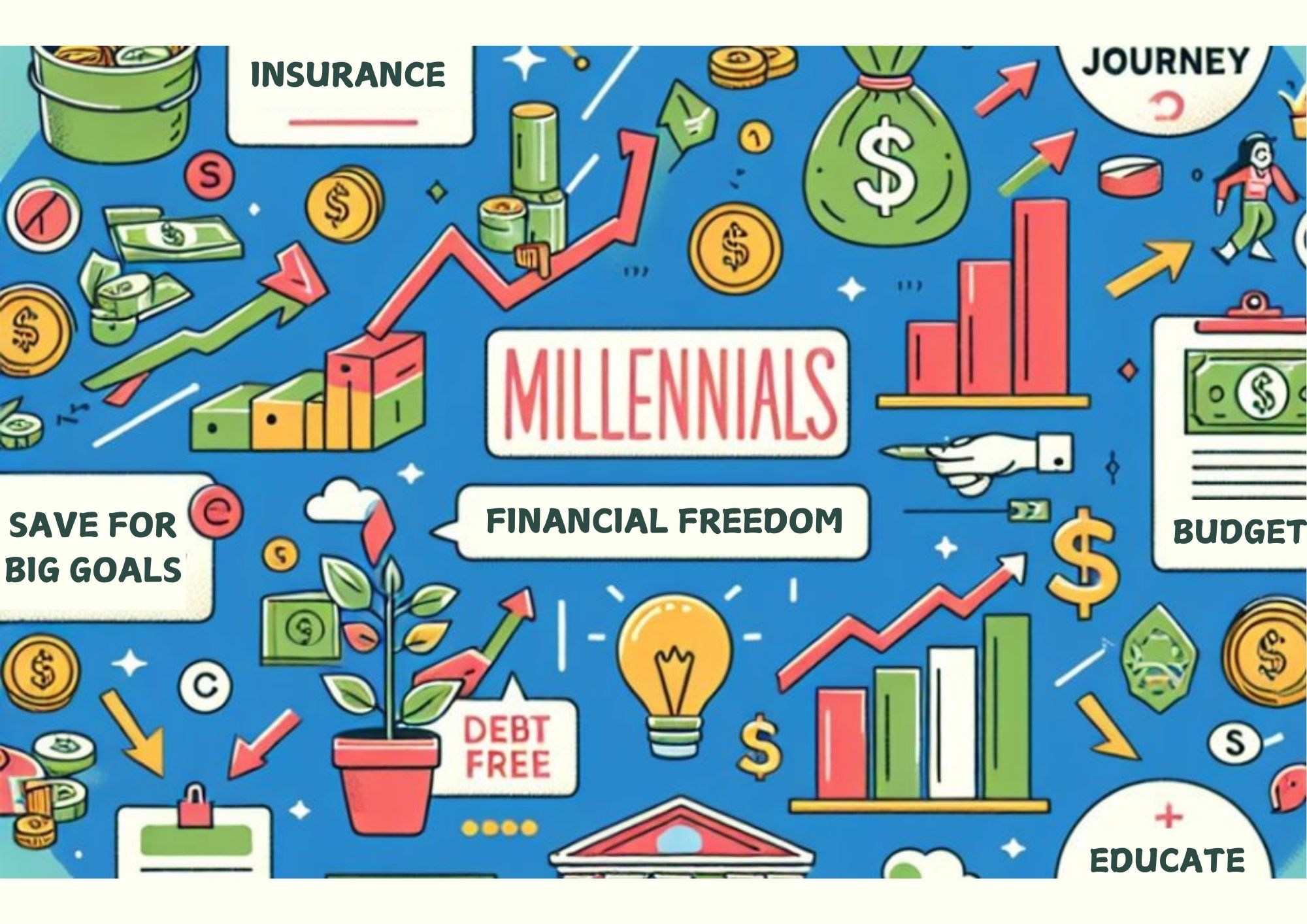Mutual Funds vs Traditional Investment Products: Which One Aligns with Your Financial Goals?
June 19th, 2025 Mutual Fund
In today’s dynamic financial environment, investors are often torn between staying loyal to traditional products like Fixed Deposits (FDs), PPF, and LIC policies, or stepping into market-driven investments like mutual funds.
Each option has its place, but the best choice
depends on your financial objectives, time horizon, and comfort with risk.
Let’s break down how these options perform across five critical dimensions.
1. Returns vs. Risk: The Core Trade-Off
|
Investment Option |
Type |
Risk Level |
Expected Returns |
|
Mutual Funds (Equity) |
Market-linked |
Moderate to High |
10%–14% (long-term) |
|
Fixed Deposits (FDs) |
Fixed-income |
Low |
6%–7% (pre-tax) |
|
Public Provident Fund |
Government-backed |
Very Low |
~7.1% (tax-free) |
|
LIC Traditional Plans |
Insurance + Savings |
Very Low |
4%–6% (effective yield) |
💡 Insight:
Mutual funds can generate higher returns over time, but involve market
volatility. In contrast, traditional tools offer peace of mind and capital
safety, though they may struggle to beat inflation after taxes.
2. Liquidity & Lock-In: Access Matters
|
Investment Option |
Liquidity |
Lock-in Period |
|
Mutual Funds |
High (except ELSS) |
ELSS: 3 years; others: No lock-in |
|
FDs |
Moderate |
1–5 years (premature exit penalty) |
|
PPF |
Low |
15 years (partial access after 5 years) |
|
LIC Policies |
Low |
10–20 years (early exit limits benefits) |
💡 Insight:
Mutual funds, particularly liquid and
ultra-short-term debt funds, are ideal for short-term needs due to
better accessibility.
3. Taxation: A Hidden Game-Changer
|
Instrument |
Tax on Returns |
Tax Saving on Investment |
|
Equity Mutual Funds |
10% on LTCG above ₹1 lakh |
ELSS qualifies under Section 80C |
|
FDs |
Fully taxable as per income slab |
No tax benefits |
|
PPF |
Fully tax-free (EEE benefit) |
Eligible under Section 80C |
|
LIC Policies |
Maturity tax-free (Sec 10(10D)) |
Premium qualifies under 80C |
💡 Insight:
Equity mutual funds offer good tax efficiency for long-term investors,
especially through ELSS. However, PPF
remains unbeatable for those in higher tax brackets due to its EEE
(Exempt-Exempt-Exempt) status.
4. Matching Tools to Goals
|
Financial Goal |
Most Suitable Instrument |
|
Short-term parking (1–2 years) |
Liquid Mutual Funds, FDs |
|
Long-term growth (5+ years) |
Equity Mutual Funds |
|
Tax-free retirement corpus |
PPF, NPS + Mutual Funds |
|
Life insurance protection |
Pure Term Insurance (not traditional LIC) |
|
Capital stability |
PPF, Arbitrage Funds, Short-term FDs |
💡 Insight:
Avoid mixing investment and insurance—a
common pitfall. Use term insurance for protection and mutual funds or PPF for
wealth creation.
5. Behavioural Factors: Comfort vs. Growth
Traditional options feel safer due to
guaranteed returns and legacy value. However, they often limit wealth creation.
Market-linked products like mutual funds
require patience and a steady mindset. While short-term dips may be unsettling,
those who stay invested tend to
earn more over the long haul.
✅ Balanced
Approach Tips:
·
Use PPF
for tax-free, long-term savings.
·
Use mutual
funds to build wealth and beat inflation.
·
Keep FDs
or debt mutual funds for emergency liquidity.
·
Opt for term
insurance + mutual fund combo instead of traditional LIC policies.
🧠 Final Thoughts: Personalize, Don’t
Generalize
There’s no one-size-fits-all investment. The
right mix depends on:
·
Your goal
(retirement, child’s education, emergency, etc.)
·
Your timeline
·
Your comfort
with risk and market fluctuations
🔁 Don’t chase what’s trending—invest based on
what’s relevant to your personal financial story.
Before putting your money anywhere, ask:
·
Why am I investing?
·
When will I need this money?
·
Can I accept short-term volatility for long-term
gains?
And when in doubt, consult a certified mutual
fund distributor or financial advisor to design a strategy tailored to your
needs.



